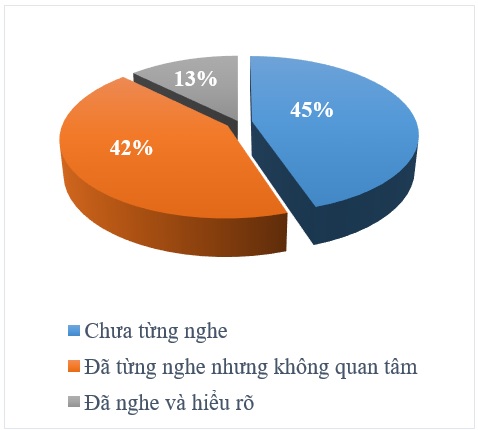13. ĐỀ XUẤT GIẢI PHÁP XÂY DỰNG THÀNH CÔNG MÔ HÌNH CƠ SỞ ƯƠM TẠO DOANH NGHIỆP KHOA HỌC VÀ CÔNG NGHỆ TẠI TRƯỜNG ĐẠI HỌC TÀI NGUYÊN VÀ MÔI TRƯỜNG HÀ NỘI
Giới thiệu
Hoạt động đào tạo - nghiên cứu khoa học - chuyển giao công nghệ là những yếu tố quan trọng trong sự phát triển và khẳng định vị thế của một trường đại học, đặc biệt là trong giai đoạn các trường đang tiến tới tự chủ về mặt tài chính. Việc phát triển vườn ươm doanh nghiệp công nghệ tại Trường Đại học Tài nguyên và Môi trường Hà Nội sẽ góp phần đẩy mạnh hơn nữa phong trào nghiên cứu khoa học và chuyển giao công nghệ trong cán bộ, giảng viên và sinh viên của Trường trên cơ sở dựa trên khảo sát người học và 57 doanh nghiệp nhỏ và vừa hoạt động trong lĩnh vực môi trường tại Hà Nội. Bài viết đánh giá về thực trạng và nhu cầu phát triển cũng như đánh giá những thuận lợi, khó khăn và đề xuất một số giải pháp nhằm xây dựng thành công mô hình này tại Trường. Để hợp tác giữa nhà trường và doanh nghiệp được thiết thực, hiệu quả và bền vững, các bên cần nhận thức rõ các lợi ích, tôn trọng và cân bằng các lợi ích. Nhà trường cần ưu tiên chuyển giao công nghệ, cung cấp nguồn nhân lực chất lượng cao và hỗ trợ doanh nghiệp trong tư vấn, giải quyết các vấn đề của doanh nghiệp. Ngược lại, doanh nghiệp cần tạo điều kiện tiếp nhận sinh viên kiến tập, thực tập, tham quan, khảo sát, tuyển dụng và sử dụng sinh viên tốt nghiệp của nhà trường; đóng vai trò là nhà cung cấp thông tin, phản biện để các cơ sở đào tạo nắm được nhu cầu của thị trường lao động; thường xuyên trao đổi, góp ý chương trình đào tạo, mô hình, phương pháp đào tạo của nhà trường; tài trợ, ủng hộ cho nhà trường cơ sở vật chất, thông tin và các nguồn lực trong khả năng của doanh nghiệp.
Toàn văn bài báo
Trích dẫn
[2]. Bộ Khoa học và Công nghệ (2020). Thông tư số 07/2020/TT-BKHCN ngày 11/12/2020 về việc hướng dẫn việc thành lập cơ sở ươm tạo doanh nghiệp nhỏ và vừa, cơ sở kỹ thuật hỗ trợ doanh nghiệp nhỏ và vừa, khu làm việc chung hỗ trợ doanh nghiệp nhỏ và vừa khởi nghiệp sáng tạo.
[3]. Chính phủ Nước Cộng hòa xã hội chủ nghĩa Việt Nam (2009). Nghị định số 56/2009/NĐ-CP ngày 30 tháng 6 năm 2009 về trợ giúp phát triển doanh nghiệp nhỏ và vừa.
[4]. Chính phủ Nước Cộng hòa xã hội chủ nghĩa Việt Nam (2015). Nghị định số 78/2015 /NĐ-CP ngày 14 tháng 9 năm 2015 về đăng ký doanh nghiệp.
[5]. Quốc hội Nước Cộng hòa xã hội chủ nghĩa Việt Nam (2014). Luật doanh nghiệp số 68/2014/QH13 ngày 26 tháng 11 năm 2014.
[6]. Quốc hội Nước Cộng hòa xã hội chủ nghĩa Việt Nam (2014). Luật hợp tác xã số 23/2012/QH13 ngày 20 tháng 11 năm 2012.
[7]. Tổng cục Thống kê (2015). Báo cáo sơ bộ kết quả Tổng điều tra cơ sở kinh tế, hành chính, sự nghiệp năm 2015. Hà Nội.
[8]. Vũ Tiến Lộc và cộng sự (2016). Môi trường kinh doanh đối với các doanh nghiệp nhỏ và vừa Việt Nam.
[9]. Allen, D. N and McCluskey, R. (1990). Structure, Policy, Services and Performance in the Business Incubator Industry, Entrepreneurship, Theory and Practice, Vol.15, no.2, pp. 61 - 77.
[10]. United Nations (2004). Promoting Business and Technology Incubation for Improved Competitiveness of Small and Medium-sized Industries Through Application of Modern and Efficient Technologies, UN Publication, ISBN: 91-1-120353-9.
[11]. UKBI (2008). What is Business Incubation?. http://ukbi.co.uk.
[12]. http://www.hanoimoi.com.vn/tin-tuc/Doanh-nghiep/999867/ha-noi-day-manh-ho-tro-doanh-nghiep-nho-va-vua.





